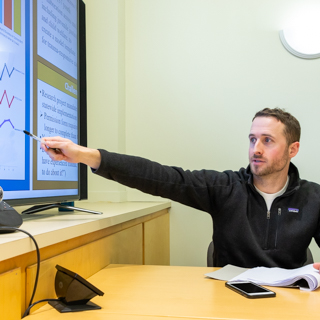Expressions
Expression questions were specifically selected to locate youth who are likely suffering from PTSD and/or depression based on criteria from the DSM-5, the Centers for Disease Control 2016 (CDC), and by the National Child Traumatic Stress Network (NCTSN) in 2017. Additionally, several questions were borrowed from two validated instruments:
- Connecticut Trauma Screener (CTS) and
- the Child and Adolescent Needs and Strengths (CANS). The following documents whether the question is a criteria for PTSD or Depression and other validated trauma screeners that utilized similar questions.
PTSD
- Had Trouble Sleeping or Bad Dreams:
- DSM-5 Criteria for PTSD classified under “alterations in arousal and reactivity.” Nightmares are also included under PTSD classified under “intrusion systems.”
- CTS Question: Trouble Sleeping.
- CANS asks about disruption in sleep regardless of the cause, including problems going to bed, staying asleep, waking up early, or sleeping too much.
- Had Trouble Paying Attention or Concentrating: (PTSD and Depression)
- DSM-5 Criteria for PTSD “difficulty concentrating” This criteria falls under the alterations in arousal and reactivity category.
- CTS Question: Hard to concentrate or pay attention.
- CANS: Problems with attention, concentration, and task completion.
- Felt Alone or not close to people around you:
- DSM-5 Criteria for PTSD worded as “feeling isolated” classified under “negative alterations in cognition and mood.”
- CTS Question: Feel alone and not close to people around you.
- Have you not wanted to be around certain people, places, or things that remind you of upsetting or scary things that have happened?
- DSM-5 Criteria for PTSD worded as “avoidance of trauma related stimuli after the trauma, in the following way: trauma external reminders.” Under the category of “intrusion symptoms.”
- CTS Question: Try to stay away from people places, or things that remind you about something that happened.
- Had uncomfortable feelings when thinking about what has happened (sweating, upset stomach, thumping heart)?
- DSM-5 Criteria for PTSD worded “Avoidance of trauma related stimuli after the trauma, in the following way: trauma related thoughts or feelings.” Under the category of “intrusion symptoms.”
- CTS Question: Strong feelings in your body when you remember something that happened (sweating, heart beat fast, feel sick).
- CCDCI: How often do you remember things you don’t want to remember?
- Become angry or upset when thinking about things that have happened.
- DSM-5 Criteria for PTSD under the category of “Alterations in arousal and reactivity.”
- CANS: The child’s/youth’s ability to identity and manage their anger when frustrated.
- Used alcohol or drugs to make you feel better?
- DSM-5 Criteria for PTSD worded “Risky or destructive behavior” under the category of “alterations in arousal and reactivity.”
- CANS: Child’s/youth’s reaction to any traumatic or adverse childhood experience: use of alcohol and illegal drugs, misuse of prescription medication and the inhalation of any substance for recreational purposes.
Depression According to DSM-5 Criteria
- Had Trouble Paying Attention or Concentrating: (PTSD and Depression)
- DSM-5 Criteria for Depression worded “Diminished ability to think or concentrate, or indecisions, nearly every day.”
- CTS Question: Hard to concentrate or pay attention.
- CANS: Problems with attention, concentration, and task completion.
- Blamed yourself or felt guilty for things that have happened?
- DSM-5 Criteria for depression worded “feelings of worthlessness or excessive or inappropriate guilt nearly every day.”
- Thought About hurting yourself because you were angry or sad?
- Similar to DSM-5 criteria for depression worded “recurrent thoughts of death, recurrent suicidal ideation without a specific plan… Those struggling with severe depression may have thoughts of self-harm, death, or suicide, or have a suicide plan.”
- CANS: “Repetitive, physically harmful behavior that generally serves as a self-soothing function to the child/youth.
- CCDCI: How often do you think about hurting yourself?
- Thought About Suicide:
- DSM-5 Criteria for depression worded: “recurrent thoughts of death, recurrent suicidal ideation without a specific plan… suicide attempt or a specific plan for committing suicide.”
- CANS: “Suicidal and significant self-injurious behavior.”
- CCDCI: How often do you think about killing yourself?
- Feel Sad or Hopeless:
- DSM-5 Criteria for depression worded “depressed mood most of the day, nearly every day.”
- CTS Questions: Trouble feeling happy.
- CANS: “Irritable or depressed mood, social withdrawal, sleep disturbances, weight/eating
